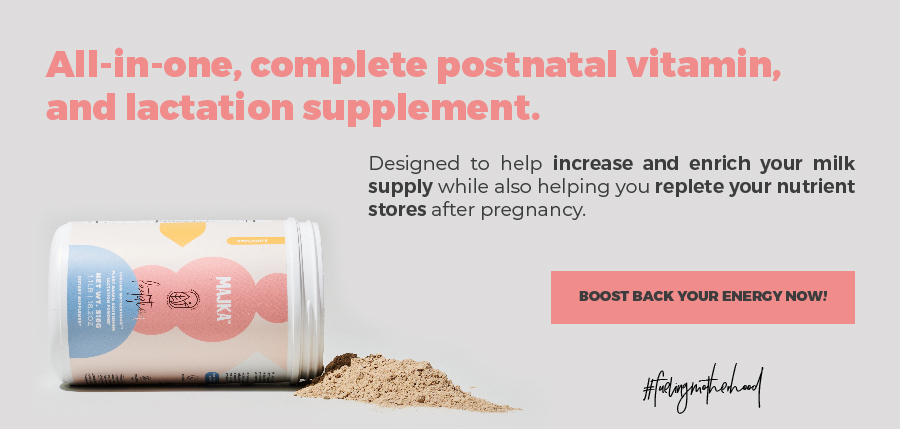
Weaning doesn’t necessarily mean the introduction of solids. There could be another reason you might choose to wean your baby, such as introducing formula.
Weaning means a switch in your baby’s diet from breast milk to formula or other fluids/ foods. It also means a change for you as you will stop producing milk.
In this article we will tell you about weaning and the impact it can have on you and your baby.
When should I wean?
The World Health Organization (WHO) recommends exclusive breastfeeding for the first 6 months of your baby’s life. Breast milk provides the nutrients that your baby needs in this stage of life. Even so, we understand that every family has their own needs and this may not be the right choice for you.
It’s important to talk to your healthcare provider about your specific case.
The WHO confirms that breast milk provides up to fifty percent or more of your baby’s nutritional needs during his/her 6-12 month stage of life (and even into months 12-15).
If you are breastfeeding but need to introduce formula to your baby, it is recommended to do this once your baby has reached at least 3-4 weeks of age. If you want to learn more about supplementation (introducing formula to a breastfed baby) here is a full article on it.
Now we will tell you about some of the signs to watch for when your baby is ready to start eating solids:
- His/her weight has been doubled
- Your baby can sit up with some support and control head and neck movements.
- He/she can coordinate eyes, hands, and mouth to pick up food and put it in his/her mouth without help.
- Your baby starts to show you when he/she is full by turning his/her head away or not opening the mouth.
- Your baby shows interest when other people are having solids.
How do I wean?
As we mentioned, every person is unique. So although we will provide recommendations, you have your own needs. Always consult a healthcare professional when deciding what’s best for you.
Recommendations to wean are:
- Let your body adjust naturally and slowly. Start by dropping one breastfeeding a week, and then replace a second breastfeeding with a bootle.
- If you started introducing alternative solids, your body may have already slowed it’s milk production process.
- When weaning from pumping, do it slowly. Space each pumping session further apart each time, so your body releases at a lower rate.
*In Breastfeeding 101 we have a more detailed article on these recommendations called The day has come for weaning… Now what? Feel free to check it out!
What effect will weaning have on my child (by age)?
It’s important to mention that babies that have not been breastfed have been associated with an increased incidence of infectious morbidity, elevated risks of childhood obesity, diabetes, leukemia, and sudden infant death syndrome.
By providing this information, we do not intend to shame or instill fear! As you know, there are great alternatives to breastfeeding, and you can always talk to your healthcare provider to find out what is the best option for your family.
In the following, we share with you some of the effects of weaning:
- If your baby is younger than six months of age:
- Introducing solids at this age can be too soon in some cases, as your baby may not be physically ready.
- If your baby’s digestive system and kidneys are still developing, introducing solids may increase the risk of asthma, eczema, digestive problems, allergies, and obesity later in life.
- If your baby is older than six months:
- Introducing solids to your baby does not mean that you need to wean. The American Academy of Pediatrics (AAP) recommends that your baby has a combination of solid foods and breast milk from 6 months to at least 1 year. Otherwise, he/she may not get all the nutrients needed in this period.
- After one year of age:
- A common myth is that breastmilk is not beneficial for your child as he/she begins introducing solids. This isn’t true, because your milk composition changes to meet your baby’s needs. If you decide to maintain breastfeeding after your baby is 12 months of age, your milk is still a healthy option.
The American Academy of Family Physicians has even said that children that weaned before they were two years showed an increased risk of illness or prolonged illness.
What can I do to make weaning easier?Weaning should be a slow and loving process. Keep in mind that your baby is used to your warm breast and the bond that comes with breastfeeding. Ending this process abruptly can make your baby confused or uncomfortable.
Making this change quickly could be harmful for you too, as your breast could become painful, engorged, or develop an infection.
Other recommendations are:
- If your baby is hesitant to take a bottle from you, ask for help from someone else to introduce bottles to your baby.
- Express less milk than usual so your body adjusts to making less milk supply.
- Breastfeed only if your child asks for it.
Impact of Breastfeeding in Child Development
As we mentioned before, the composition of your milk will change with your child’s needs.
The WHO has affirmed that breastfed children have better results on intelligence tests, are less likely to be overweight, and are less prone to diabetes. Moms who breastfeed also have a reduced risk of breast and ovarian cancers.
Breastfeeding can protect your baby against illness and diseases! Breast milk transfers antibodies from you to your baby, helping him/her to develop a strong immune system.
Breastfed babies are also less likely to have ear infections and stomach bugs.
In Breastfeeding 101 we hope this information has helped you learn about weaning, methods to make it easier, and the effects it can have on your baby.
If you want to learn more about topics regarding your baby’s health, we invite you to follow our content.
Here are some of the sources that made this article possible:
- Age at Weaning and Infant Growth: Primary Analysis and Systematic Review I National Library of Medicine
- Breastfeeding I World Health Organization
- Breastfeeding Benefits Both Baby and Mom I CDC
- Feeding patterns and diet – children 6 months to 2 years I Medline Plus
- How to stop breastfeeding I NHS
- Infant and toddler health I Mayo Clinic
- Key Breastfeeding Indicators I CDC
- Psychological effects of breastfeeding on children and mothers I National Library of Medicine
- The Risks of Not Breastfeeding for Mothers and Infants I National Library of Medicine
- The worries of weaning: Newspaper reporting of infant weaning and its impact on dialogue in online discussion forums I SageJournals
- Your baby’s first solid foods I NHS
- Weaning your child I KidsHealth
- Weaning made easy I public health
- What is weaning and how do I do it? I NIH
Avery Reckers





